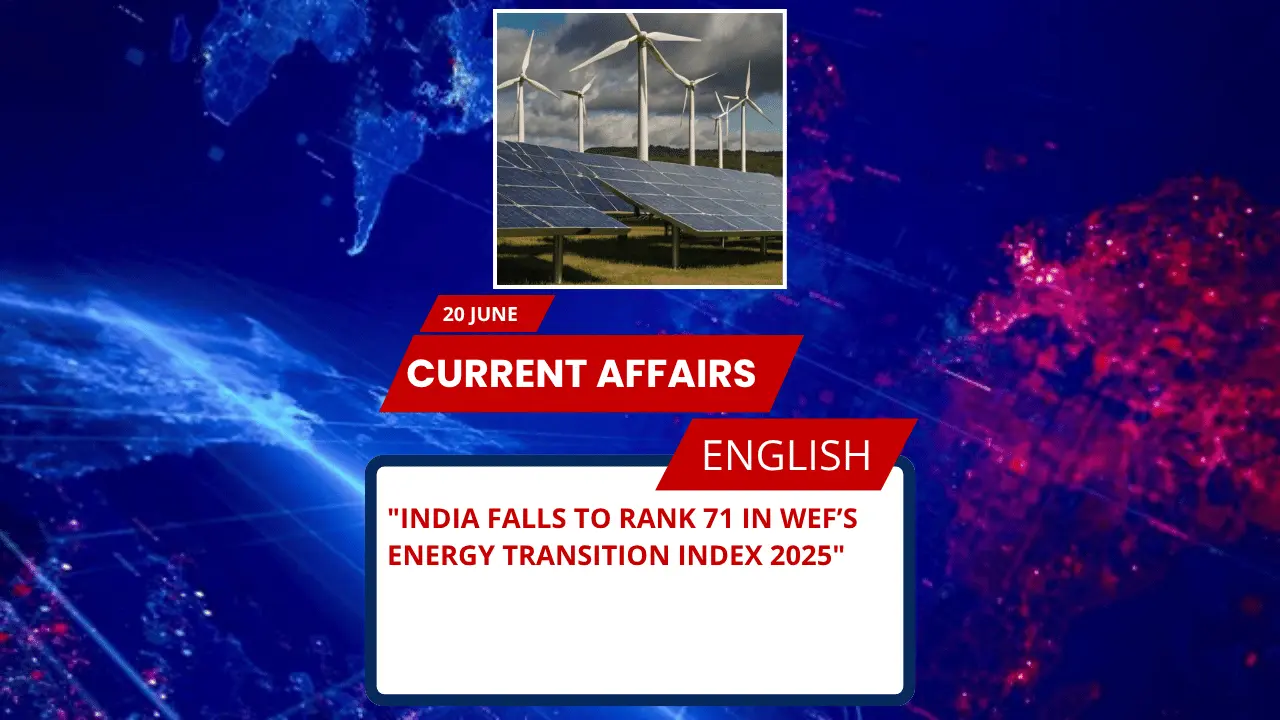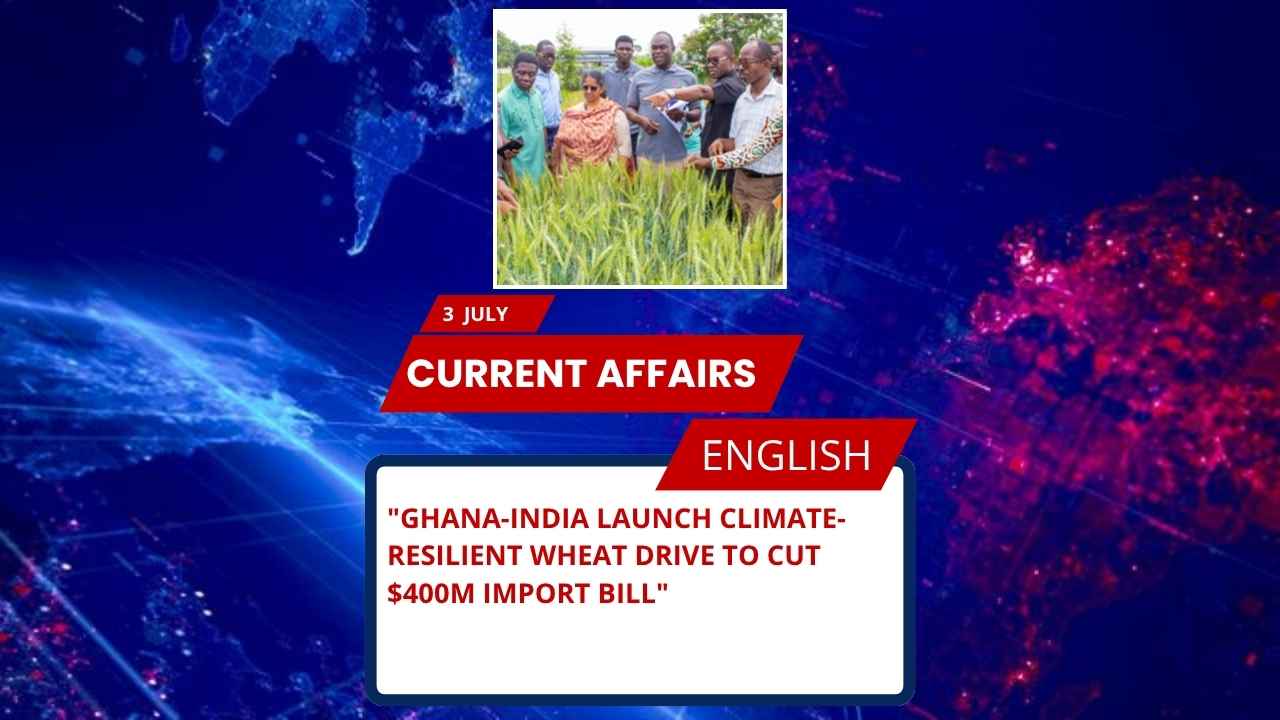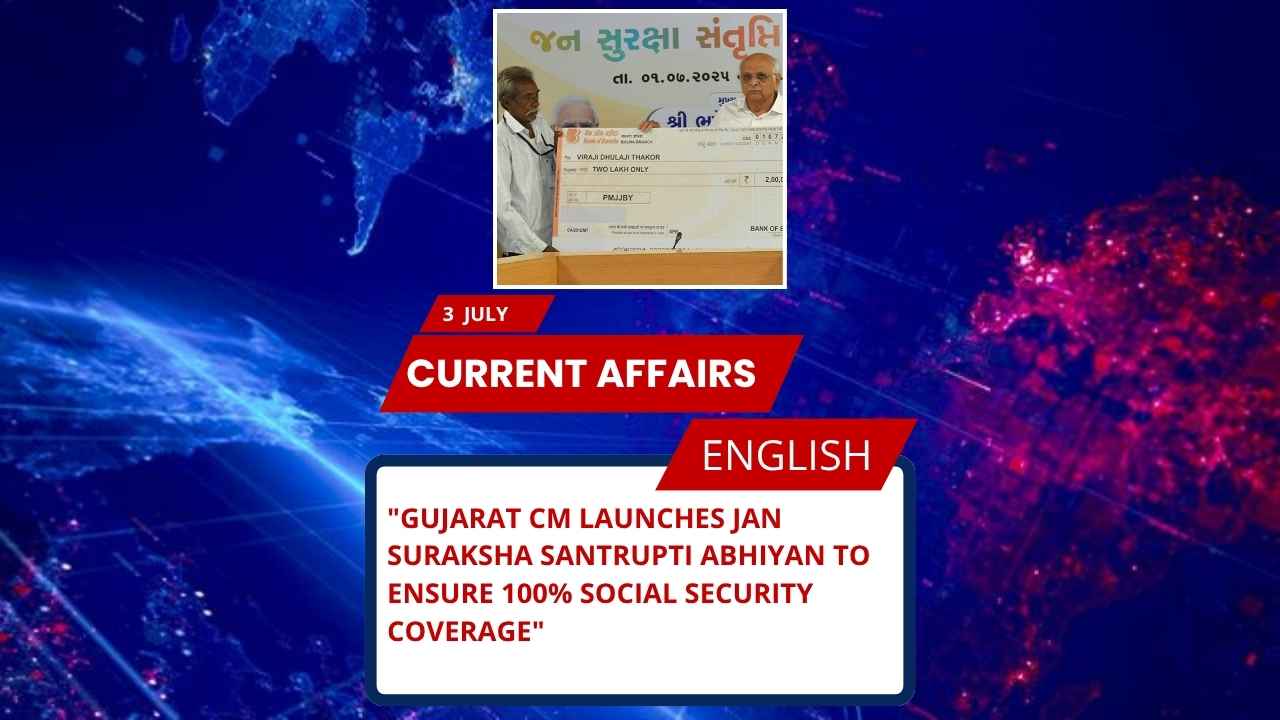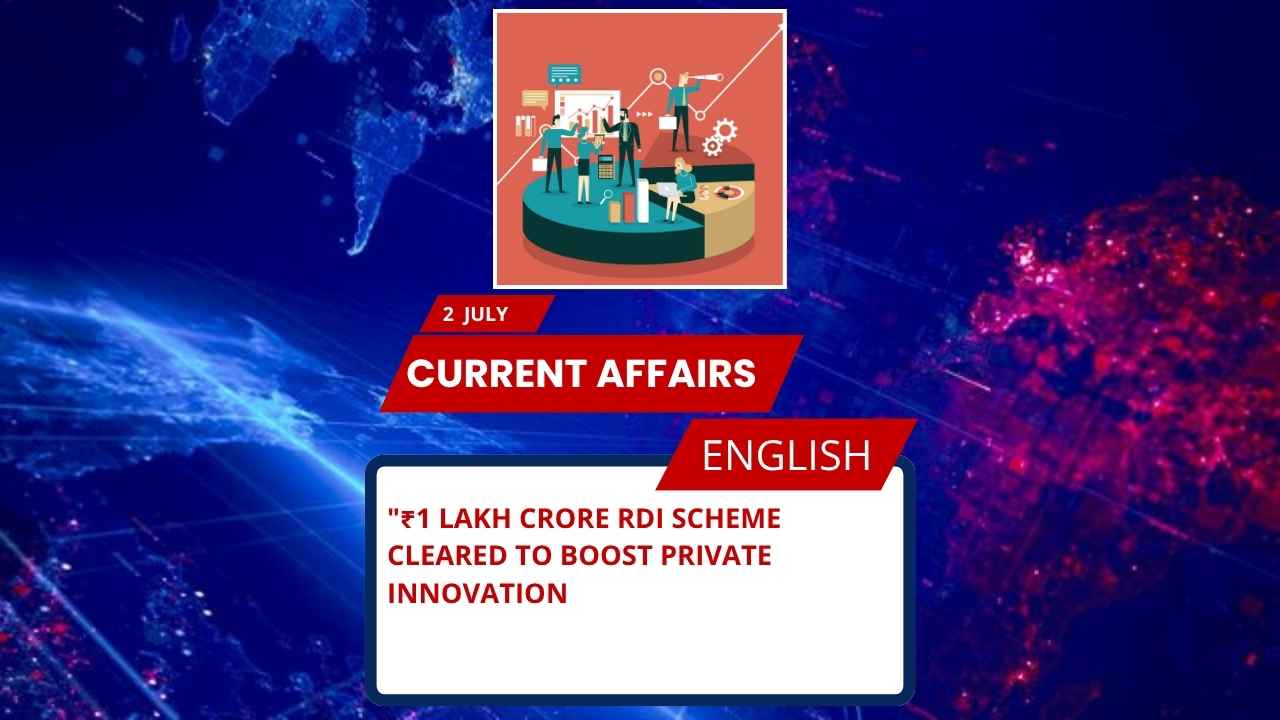
Key Points for SSC & Government Exams
- India ranks 71st in the World Economic Forum’s (WEF) Energy Transition Index 2025.
- India had ranked 63rd in 2024, marking a decline of 8 positions.
- Index ranks 118 countries based on energy system performance and transition readiness.
- India’s total ETI score: 53.3; system performance: 60.4; transition readiness: 42.7.
- Sweden tops the index; other top countries include Finland, Denmark, and Norway.
- China leads “Emerging Asia” with high innovation and financial capacity.
- WEF report highlights progress in India’s energy equity, regulations, and investment.
- Challenges for India include rural energy access and infrastructure development.
Complete Explanation
What is the Energy Transition Index?
The Energy Transition Index (ETI) is an annual report published by the World Economic Forum (WEF). It tracks the performance of countries in their journey from fossil fuels to sustainable energy sources such as solar, wind, and hydroelectricity. The ETI ranks countries based on two major pillars:
- System Performance
- Transition Readiness
These are further divided into 43 indicators and scored on a scale of 0 to 100.
India’s Ranking in 2025 and Performance Breakdown
India slipped from rank 63 in 2024 to rank 71 in 2025 among 118 countries assessed.
- Total ETI Score: 53.3
- System Performance Score: 60.4
- Transition Readiness Score: 42.7
Although India dropped in ranking, the report highlighted progress in:
- Energy efficiency
- Methane emission control
- Regulatory frameworks
- Financial investments in clean energy
Top Countries in ETI 2025
- Sweden – Rank 1 (Score: 77.5)
- Finland
- Denmark
- Norway
These countries are recognized for consistent performance in sustainability, energy equity, and infrastructure readiness.
Challenges India Faces in Energy Transition
- Improving grid reliability for stable energy distribution.
- Expanding energy access in rural regions.
- Reducing dependence on imported fossil fuels.
- Enhancing infrastructure and skilled workforce for renewable energy sector.
India’s Progress Despite Challenges
According to the WEF, India made substantial strides over the past decade in:
- Increasing energy equity through broader energy access.
- Investing in renewable energy technology.
- Introducing supportive energy regulations.
Still, India’s readiness remains below global leaders, primarily due to infrastructure and financing gaps.
Important Organization: World Economic Forum (WEF)
- Founded: 1971
- Headquarters: Cologny, Switzerland
- Founder: Klaus Schwab
- Purpose: Public-private cooperation to shape global, regional, and industry agendas.
- Major Report: Global Competitiveness Report, Global Risk Report, Energy Transition Index (ETI)
MCQs (Based on Exam Pattern)
Q1. What was India’s rank in the World Economic Forum’s Energy Transition Index 2025?
A. 63
B. 71
C. 65
D. 59
Answer: B. 71
Q2. Which country topped the Energy Transition Index 2025?
A. Norway
B. Denmark
C. Sweden
D. Finland
Answer: C. Sweden
Q3. What is India’s score in the system performance category of ETI 2025?
A. 42.7
B. 53.3
C. 60.4
D. 77.5
Answer: C. 60.4
Q4. Which organization publishes the Energy Transition Index?
A. UNDP
B. World Economic Forum
C. World Bank
D. IEA
Answer: B. World Economic Forum
Q5. What is a major challenge in India’s energy transition according to the ETI 2025 report?
A. Overproduction of coal
B. Lack of oil refineries
C. Poor energy access in rural areas
D. Excess use of hydroelectricity
Answer: C. Poor energy access in rural areas
UPSC Format FAQs with Model Answers
Q1. Why did India’s rank fall in the Energy Transition Index 2025 despite progress in some areas?
Answer:
India’s drop from 63 to 71 in the ETI 2025 reflects a relative performance decline compared to other nations, rather than a regression in India’s own progress. While India showed improvements in energy efficiency, emissions control, and investment capacity, these gains were not enough to keep pace with faster reforms in other countries. Moreover, India still lags in transition readiness due to infrastructural, regulatory, and rural access challenges, which impacted its composite score. Long-term investment in renewable infrastructure and grid stability is essential to improve this rank.
Q2. What is the significance of the Energy Transition Index for India’s energy policy?
Answer:
The ETI acts as an international benchmark that assesses the efficacy of India’s energy policies in meeting sustainability and access goals. For India, which is heavily dependent on fossil fuels, the index provides critical insights into areas requiring reform, such as grid modernization, clean energy investment, and equitable access. By addressing weaknesses in the transition readiness index—particularly infrastructure and finance—India can align better with its climate commitments and sustainable development goals (SDGs).
Q3. What are the global implications of energy transition in major economies like India?
Answer:
Major economies like India play a pivotal role in the global energy landscape due to their size, population, and consumption patterns. A successful transition in India would significantly contribute to global emission reduction targets and climate resilience. Conversely, slow progress in India could hinder the global pace of clean energy adoption. Therefore, India’s trajectory has direct implications for international climate agreements such as the Paris Accord and for the global energy market’s stability.







